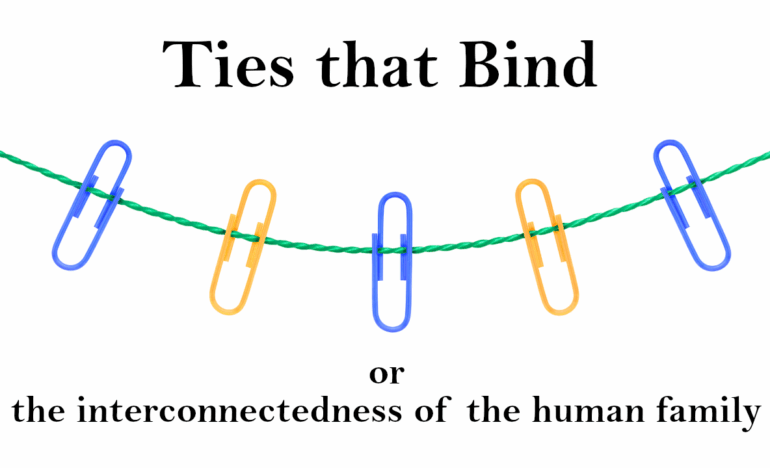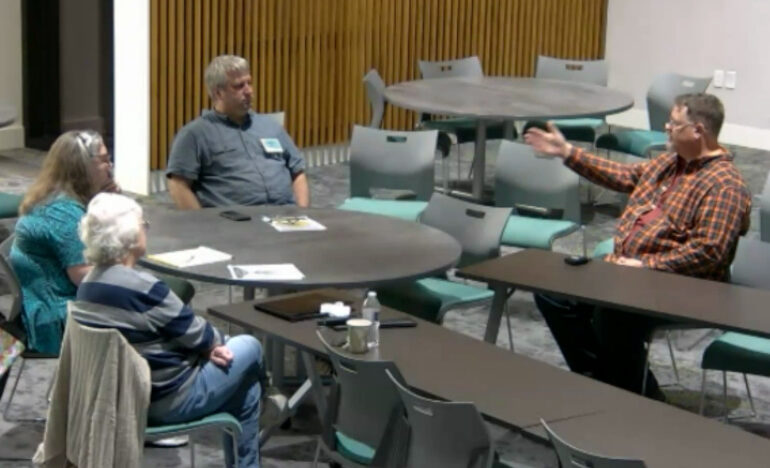As We Turn the Page: A Reflection on Our Contemplative Journey

By Kathy Keary
The full Contemplative Life series is here: The Contemplative Life – Precious Blood Renewal Center (pbrenewalcenter.org)
Our new series on Judaism and Contemplation is here.
Before we turn the page to a new chapter in our Contemplative Life series, let’s take a moment to review the nature of this enriching way of life. In an earlier essay, It’s All About the Kiss, we summarized this life-giving spirituality.
Contemplation is the awareness and attention to all of life through which we discover the embrace of God’s love. In contemplation, we remember the kiss from God that breathed life into our mortal frame. Living contemplatively gives us a greater sense of wellbeing and profound gratitude. It deepens our awareness of our connectedness and communion with others and all of God’s wonderful creation. It directs our minds and hearts to the truly important issues of human existence making us less likely to be taken off course by the many distractions found in our world.
The contribution of the wisdom of Thomas Merton in this area cannot be overstated. He described this way of being as:
…life itself, fully awake, fully active, fully aware that it is alive. It is spiritual wonder. It is spontaneous awe at the sacredness of life, of being. It is gratitude for life, for awareness, and for being. It is a vivid realization of the fact that life and being in us proceed from an invisible, transcendent, and infinitely abundant Source. Contemplation is, above all, awareness of the reality of that Source. It knows the Source, obscurely, inexplicably, but with a certitude that goes beyond reason and beyond simple faith. It is a more profound depth of faith, a knowledge too deep to be grasped in images, in words, or even in clear concepts…
Throughout the ages, God has raised up prophets to preach the contemplative way of being. While much of our series has been written from a Christian perspective, the picture would not be complete without drawing upon the insights of other faith traditions.
A section of our series is devoted to highlighting the similarities between the teachings of Jesus and the Buddha who lived more than six hundred years before Jesus. We then delve into the contemplative gems found in Islam whose founder, Muhammad, was born almost six hundred years after Jesus.
Note: Never miss an article published on the Renewal Center website: Sign up to receive our newsletters.
In our article, “Spiritual Treasures Along the Contemplative Path: An Introduction to Interspirituality,” we spoke of the breath-taking tapestry created by the melding of the faith traditions of the world that speak of the many ways that God has drawn people into the divine embrace. As we explore other faiths, our understanding and appreciation of other religions expand, fortifying within our hearts a sense of unity among the people of God.
We now turn the page to explore the contemplative treasures found in Judaism, the oldest of the three Abrahamic faiths. Judaism began more than four thousand years ago with Abraham and Sarah and now enjoys a population of 15 million Jews spread throughout the world with approximately 6 million in the United States and 5 million in Israel. Within the other Abrahamic faiths, there are 2.5 billion Christians and 1.8 billion Muslims dotting the map. The descendants of our mother and father in faith far exceed the number of “stars in the sky.”
Rabbi Ted Falcon compares Judaism with a tree with many branches: “There’s a common trunk and root system, but each sect or denomination is off on its own branch, and in many cases, each synagogue is on its own little twig” (Falcon, 17). Offshoots of a specific faith are not peculiar to Judaism as is evidenced within the many faiths of the world and quite notable in Christianity.
At Precious Blood Renewal Center, we endeavor to be a beacon of “healing and hope renewal and reconciliation for all people.” As an inclusive community, it is with this spirit that we offer the Contemplative Life series.
In exploring other faiths, we are inspired by the words of the interspiritual teacher, Mirabai Starr: “When we say yes to the God of Love in an unfamiliar and potentially uncomfortable form, locks fly off the doors of the heart, making more room for the Mystery to dwell there” (Starr, 212). May we continue to open our hearts to our God who is not confined to one faith tradition – a God who draws people from around the globe to a more contemplative way of being.
Stay tuned to our next article where we will begin our exploration of the contemplative gifts offered in Judaism.
References
Falcon, Ted and Blatner, David. Judaism for Dummies. Hoboken, New Jersey: John Wiley and Sons, Inc, 2019.
Starr, Mirabai. God of Love: A Guide to the Heart of Judaism, Christianity, and Islam. Rhinebeck, NY: Monkfish Publishing Company, 2012.
Photo 85961367 / Open Book © Stanislav Salamanov | Dreamstime.com
Kathy Keary, a Precious Blood Companion and spiritual director, holds a Master’s Degree in Theological Studies and is a graduate of the Atchison Benedictines Sophia Center’s Souljourners Program, an intense study of spirituality and spiritual direction. Kathy believes that the Divine is present and active in all of life and encourages others to be awakened to the God in all including the divine within. She enjoys accompanying others on their journey to wholeness discovering the person they were created to be.
We’d Like to Hear from You!
We’d like to know what you think about this article. Send us a comment using the form below. Do you have a suggestion? Is there something you want to learn more about? Send us a note.
Related

Ties That Bind
By Fr. Garry Richmeier, C.PP.S.
We pride ourselves on being independent, self-made, with a “pull yourself up by your bootstraps” mentality. But we sometimes give in to the “group think,” attaching ourselves to a group, a religion, a philosophy and blindly follow the herd. Finding middle ground between these extremes is necessary for a satisfying, productive life.

Introduction to Buddhist Meditation
This is a recording of “Introduction to Buddhist Meditation” presented by Lama Matthew Palden Gocha at Precious Blood Renewal Center in Liberty, Missouri, on Nov. 6, 2025, as part of our Teach Us to Pray series.
Categories
Assembling God's Puzzle Coffee with Padre Cooking & Spirituality Encounters of the 4th Kind Family Matters Guided Meditations Reflections on the Eucharsitic Prayers Spiritual Resources Taize Prayers Teach Us to Pray The Contemplative Life Traveling with Pilgrims of Hope Uncategorized Videos When you need a little help
